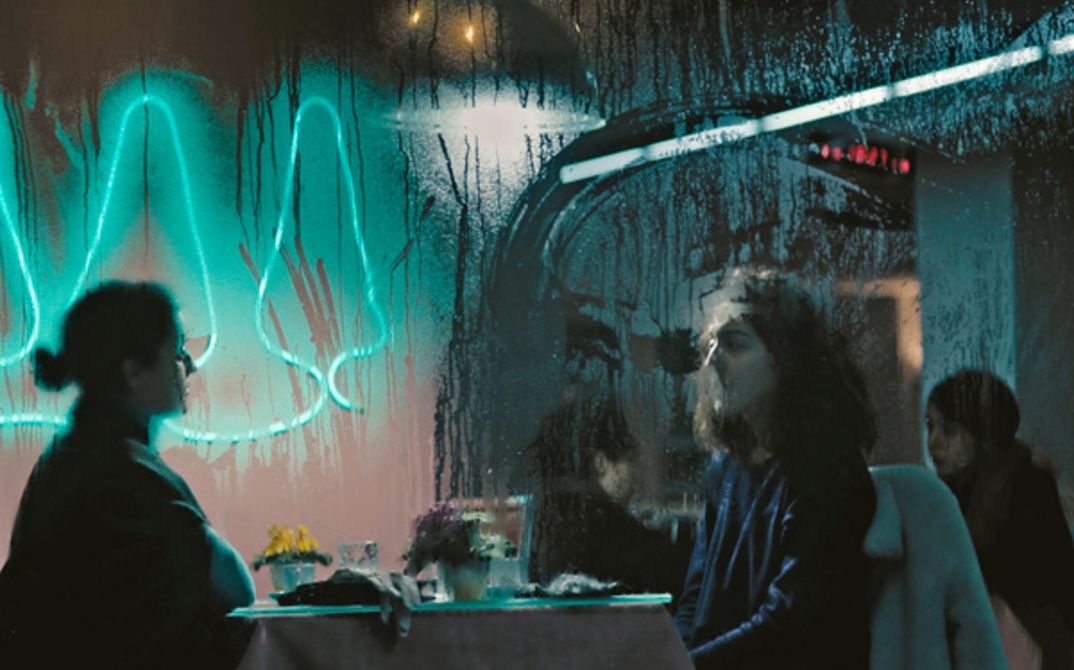70 min. Turkish.
A pregnant young woman who lives in a sort of cave is looking for her vanished sister, yet this plot summary hardly does justice to the charm, richness and radical nature of Burak Çevik’s first feature – all of which a result of the liberties he takes in creating an extravagant cinematic world to tell this story. The protagonist leaves her almost fairytale-like cave to set out across a river, taking up her sister’s trail. This trail leads her to a botanical garden, a bird shop, and a darkroom. The photo lab technician compares the effect of photographs to God turning Lot’s wife into a pillar of salt because she couldn’t resist the temptation of turning around to see Sodom be destroyed. Captured for eternity, transfixed for eternity – should we take it at face value when the protagonist tells the boatwoman that she is a part-time vampire? The dreamlike way in which the film digresses to show us a plant, a strip of negatives, or a table tennis match contributes considerably to the strange fascination it develops. Some things remain mysterious – which only makes us even more curious about what they might be referring to. (Anna Hoffmann)
Burak Çevik was born in Istanbul, Turkey in 1993. He completed studies in Film and Television at Istanbul Bilgi University in 2016. Tuzdan Kaide is his debut film.
